kanna thoughts
On the quest of a woodworking atelier that can help me create the right furniture for a super-brand store I am working on, I met with Toshio Tokunaga.
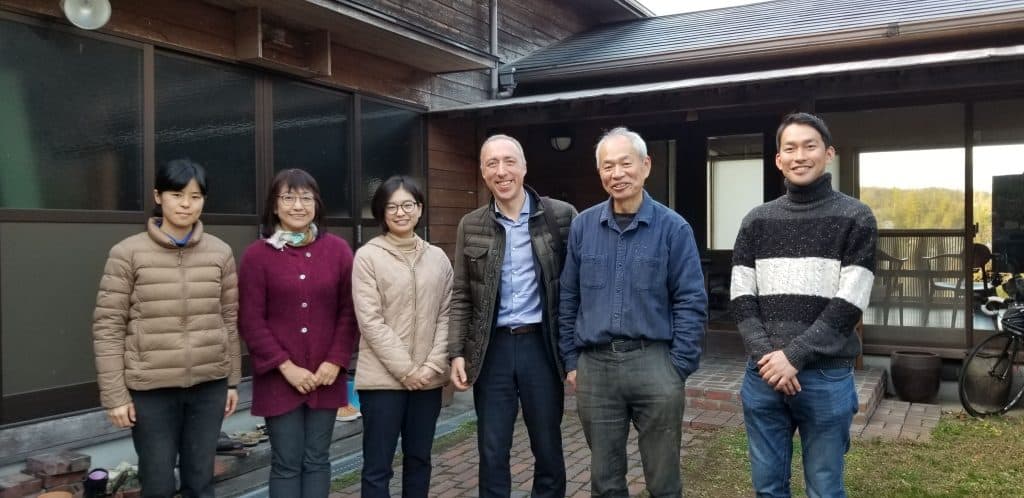
His atelier is in the Kobe countryside, next to his residence (who he built himself 25 years ago) and in front of a vegetable garden is also adjoining a temple which hosts a festival once a year.
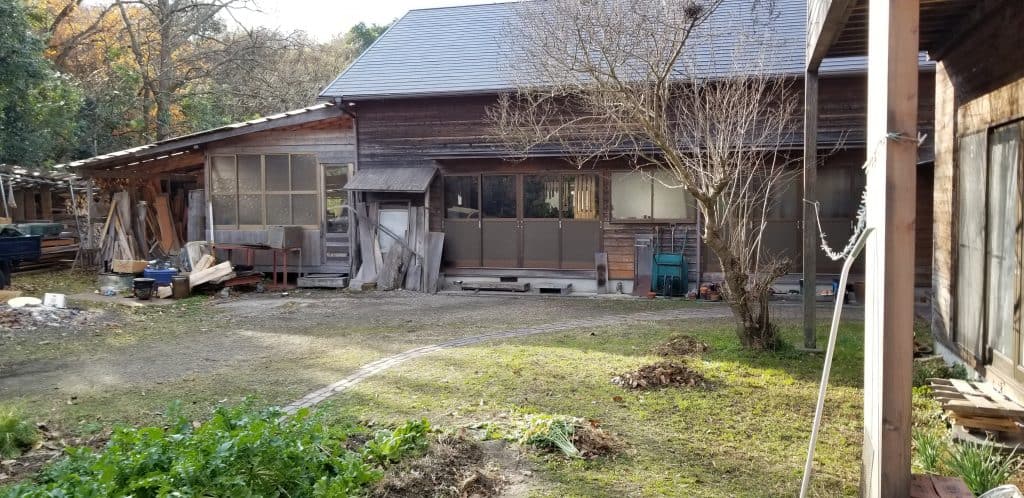
We arrived there in a winter afternoon and the setting was just like stepping on a stage of Kurosawa Akira. Smoke, sharp strokes of light from the dying sun, country sounds. The atmosphere was primed with an explosive concentration of poetic charm.
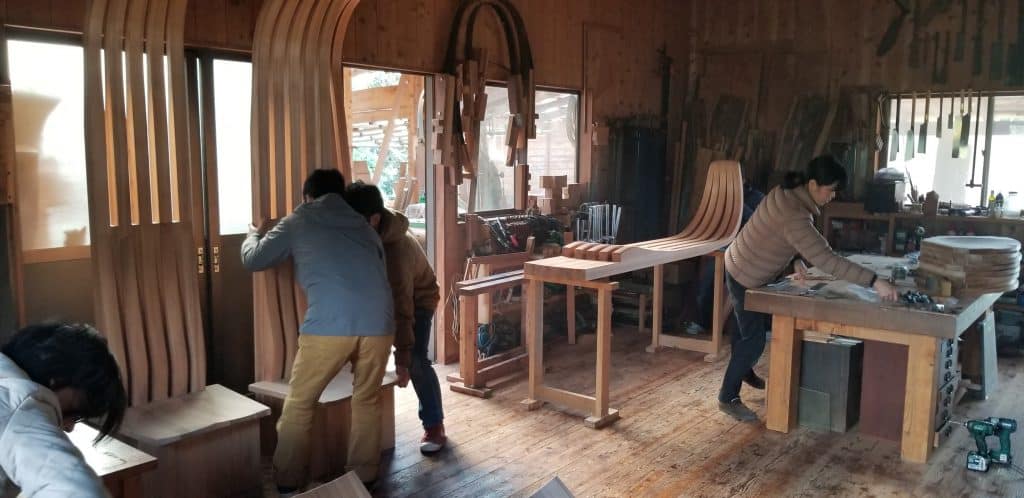
Tokunaga sensei was surrounded by young apprentices, friendly, understated. But the wood board floor showing the scars of thousands of births, the table we sit at, stained with sweat and passion and the religious dedication of his apprentices were clear signs of the genius.
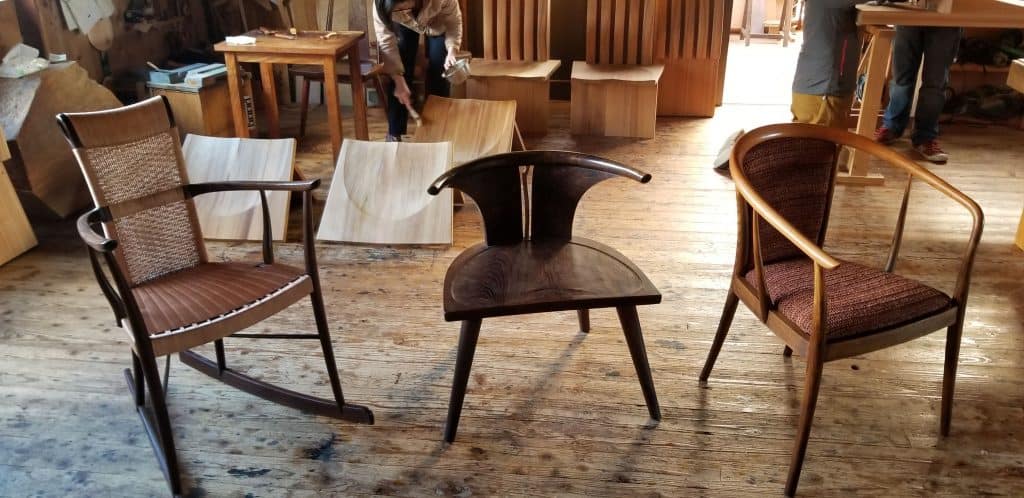
Tokunaga sensei was himself disciple of a giant: the Kyoto based woodwork artist and “Japanese National Cultural Treasure” Hekigai Takeuchi.
Tokunaga`s core concept is based on the use of the japanese hand planer (kanna). With this tool it is possible to cut sharply the wood fibers (as opposed to the use of sandpaper) thus conferring shine, hardness and durability to the object he finishes which do not need any paint finish.
Here below is a comparative microscope photo.
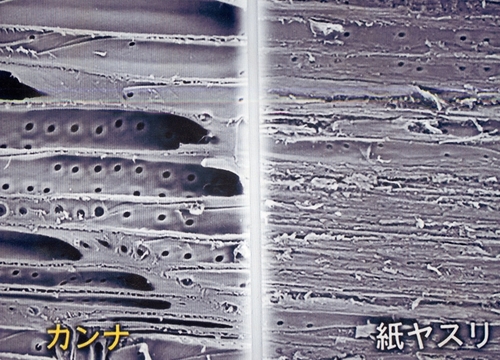
Let me mention two other points about his “kanna thoughts” I really found enlightening.
- Tokunaga sensei uses the plane also to finish curved, three dimensional and organic shapes. “When you use the plane on a curved surface, you create narrow faces of a polyhedron. Each face reflects the light and provide sharp edges to guide the eye. When finished with kanna, a curved shape becomes more iconic, its line is crisp and meaningful.”
- using kanna is not only finishing the wood, it is more like communicating with the material. While planing, you feel the wood direction, its soft and hard spots. You interpret the message already contained in the wood, you help revealing the shape that is already there. He goes as far as saying: “It is difficult to become a good craftsman if you do not have an understanding of nature. All people that played in a river in their childhood (before turning age five) have the potential of becoming a skilled craftsmen”.
(I read a similar concept about mindfulness from a 3rd century Chinese classic “Prince-Wen-Huis-Cook” and his technique in cutting meat! – but this is another story…)
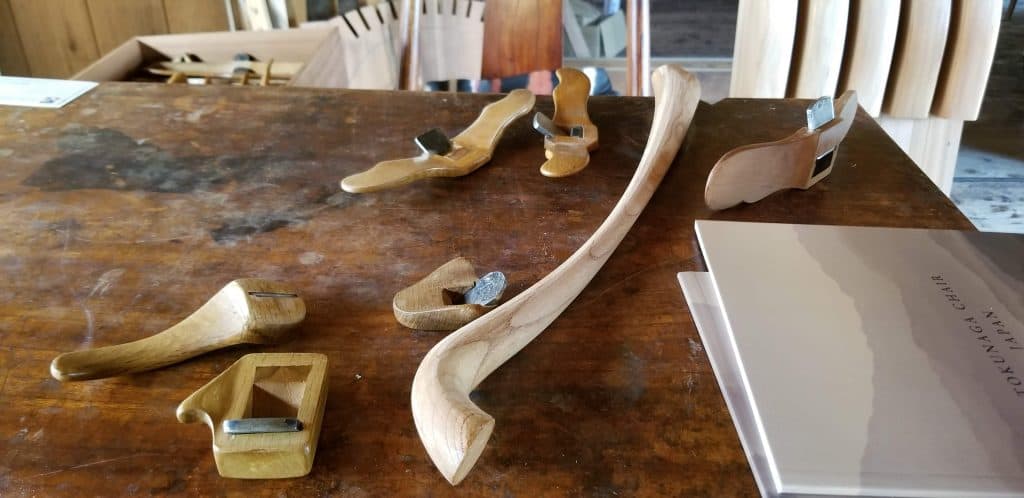
Mr. Tokunaga speaks English so you can contact him directly for any information/project/quotation etc.
If you need some help, let me know: any alibis is welcome for me in order to be able to work with these incredible craftsmen who reveal the deep philosophy of life through their hands.
Leave a Comment